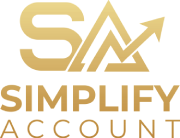
What is Payroll?
Payroll refers to the list of employees who receive compensation from a company, as well as the total amount of money paid to them. Payroll management involves various tasks such as developing pay policies, defining pay components, gathering inputs, calculating gross salary and deductions, releasing salaries, and depositing dues with authorities.
The Payroll Management Process
Firstly the process includes pre-payroll activities like defining policies and gathering inputs, actual payroll processes like calculating net pay, and post-payroll activities like statutory compliance and payroll accounting.
Components of Payroll
Earnings include basic salary, gross salary, and net take-home salary. Moreover allowances may include dearness allowance (DA) and other allowances. Deductions include EPF, LWF, professional taxes, and TDS. Other components include statutory bonus, gratuity, leave encashments, NPS, reimbursements, and arrears.
How to Create a Payslip?
A payslip includes personal information, bank details, earnings, deductions, reimbursements, and year-to-date (YTD) information.
How to Select a Payroll Service?
Consider factors like core payroll features, user-friendliness, price to performance ratio, brand reputation, integration capabilities, customer support, and additional services offered.
Start today with Our Payroll Services! Click here.
Why is Payroll Important?
It reflects financial stability, promotes employee morale, saves time and resources, streamlines activities, helps in budget cutting, risk mitigation, resource reallocation, compensation determination, and also positive company culture.
Q&A Section:
What is the primary purpose of payroll management?
Firstly the primary purpose is to ensure accurate and timely payment of wages and salaries to employees, while also complying with tax laws and other regulatory requirements.
What are the key components of a payroll system?
Key components include basic salary, gross salary, net take-home salary, allowances, deductions, and also reimbursements.
Why is it important for businesses to have an efficient payroll system?
An efficient system maintains employee satisfaction, complies with legal requirements, manages finances effectively, thus fosters a positive company culture, and avoids payroll error legal issues.


